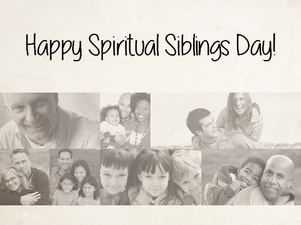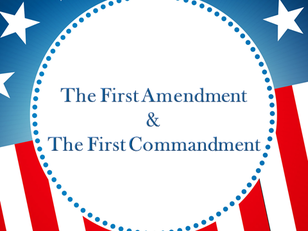
Usually a “me first” attitude is nothing to praise. But occasionally it is.
The Old Testament prophet Isaiah demonstrates how “me first” can be a good thing. In the words of the ESV Study Bible, Isaiah lived at a time when God’s people “no longer trusted the promises of God, aligning themselves instead with the promises – and the fears – of this false world” (p. 1235). That could just as easily be said about today’s world. Living in such a time must have been trying for someone like Isaiah.
Isaiah 6 records the prophet’s call via a one-of-a-kind encounter with God. Upon experiencing a glimpse of God’s holiness, the prophet bows himself in utter humility. “Woe is me! For I am a man of unclean lips, and I dwell in the midst of a people of unclean lips . . .” (Isaiah 6:5).
Seeing God in His fullness helped Isaiah see himself in his fullness. He recognizes his uncleanness and brokenness with fresh eyes that have seen God’s glory. At the same time, he recognizes the collective brokenness of his people. By speaking to both his and his people’s “unclean lips,” he confesses his contributions to his society’s spiritual condition.
It is always easy to see the brokenness of others. How often, though, do we first recognize our own shortcomings and their potential impact on others? Isaiah’s “me first” attitude reflects Jesus’ words in Matthew 7:1-5. Both passages show the power of transformation that begins with the self and moves to beneficent influence upon others.
Isaiah’s “me first” mindset continues when God asks, “Whom shall I send, and who will go for us?” Without hesitation, Isaiah replies, “Here am I! Send me.” In a time when few were living for God, Isaiah could have pointed the finger at what others should be doing. Instead he first took responsibility for himself and what he could do.
Like Isaiah, we live in times of “unclean lips.” It is easy to recognize the uncleanness of others before considering my own faults and contributions to our collective uncleanness. It is also easy to think about what others need to be doing instead of simply doing what I can do. By adopting Isaiah’s “me first” spirit, however, I will be blessed and will be positioned to be a blessing to others.
The Old Testament prophet Isaiah demonstrates how “me first” can be a good thing. In the words of the ESV Study Bible, Isaiah lived at a time when God’s people “no longer trusted the promises of God, aligning themselves instead with the promises – and the fears – of this false world” (p. 1235). That could just as easily be said about today’s world. Living in such a time must have been trying for someone like Isaiah.
Isaiah 6 records the prophet’s call via a one-of-a-kind encounter with God. Upon experiencing a glimpse of God’s holiness, the prophet bows himself in utter humility. “Woe is me! For I am a man of unclean lips, and I dwell in the midst of a people of unclean lips . . .” (Isaiah 6:5).
Seeing God in His fullness helped Isaiah see himself in his fullness. He recognizes his uncleanness and brokenness with fresh eyes that have seen God’s glory. At the same time, he recognizes the collective brokenness of his people. By speaking to both his and his people’s “unclean lips,” he confesses his contributions to his society’s spiritual condition.
It is always easy to see the brokenness of others. How often, though, do we first recognize our own shortcomings and their potential impact on others? Isaiah’s “me first” attitude reflects Jesus’ words in Matthew 7:1-5. Both passages show the power of transformation that begins with the self and moves to beneficent influence upon others.
Isaiah’s “me first” mindset continues when God asks, “Whom shall I send, and who will go for us?” Without hesitation, Isaiah replies, “Here am I! Send me.” In a time when few were living for God, Isaiah could have pointed the finger at what others should be doing. Instead he first took responsibility for himself and what he could do.
Like Isaiah, we live in times of “unclean lips.” It is easy to recognize the uncleanness of others before considering my own faults and contributions to our collective uncleanness. It is also easy to think about what others need to be doing instead of simply doing what I can do. By adopting Isaiah’s “me first” spirit, however, I will be blessed and will be positioned to be a blessing to others.




 RSS Feed
RSS Feed